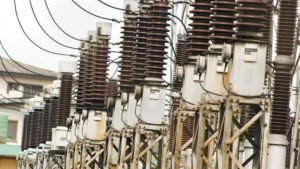
OPEC and its allies decided to maintain their policy of modestly boosting oil output next month as the rapidly spreading Omicron variant have so far not heavily hit demand.
The OPEC+ grouping, including top producers Saudi Arabia and Russia, has resisted US pressure for a wider opening of the taps in response to high energy prices fuelling a surge in inflation across the world.
The 13 members of the Organisation of the Petroleum Exporting Countries (OPEC) and their 10 allies drastically slashed output in 2020 as the pandemic wreaked havoc with demand.
Last year they decided to step it up again gradually as prices recovered while reviewing the situation every month.
After a short video conference meeting last Tuesday, the group said it had agreed to raise output by 400,000 barrels per day in February, the same level as in previous months.
The club’s members approved a previous hike at their December meeting despite the emergence of Omicron, which had caused prices to fall as markets fretted over its potential impact on the global economy.
The December decision earned the thanks of the White House, nervous of the effect of rising prices at American petrol stations, but it did not prevent crude prices from recovering considerably from their previous slump.
The price of Brent, Europe’s benchmark oil contract, hit $79.76 at 1325 GMT on Tuesday — 15 per cent higher than before the group’s December 2 meeting.
OPEC analysts told the group on Monday that Omicron would have a moderate impact on demand and the rise in price is expected to continue in 2022.
While the new COVID-19 variant is spreading like wildfire around the world, it appears to be far less severe than initially feared, raising hopes that the pandemic could be overcome and life return to a little more normality.
Sense of stability’ -In remarks on Monday, OPEC Secretary-General Mohammed Barkindo emphasised the need to “remain highly nimble and adaptable to the constantly changing situation”.
He said the group’s “flexible approach has helped provide an added sense of stability, reassurance and continuity to the market and investors”.
OPEC on Monday named Kuwaiti oil executive Haitham al-Ghais to succeed Barkindo on August 1.
Al-Ghais, who was Kuwait’s OPEC governor from 2017 to June 2021, is a deputy managing director of the Kuwait Petroleum Corporation (KPC).
While OPEC countries have been gradually increasing output again since last year, analysts note some countries, such as Nigeria and Angola, have been struggling to lift production.
“Important here is that Russia did not lift production in December which could be a sign that they are getting closer to their capacity,” SEB chief commodities analyst Bjarne Schieldrop said.
Another heavyweight, Iran, has seen its exports limited by US sanctions.
Talks to revive a deal, which curbed Iran’s nuclear activities in exchange for sanctions relief, are underway in Vienna.
They have dragged on since last year but negotiators are pushing to conclude the talks to get the 2015 landmark agreement back on track.







